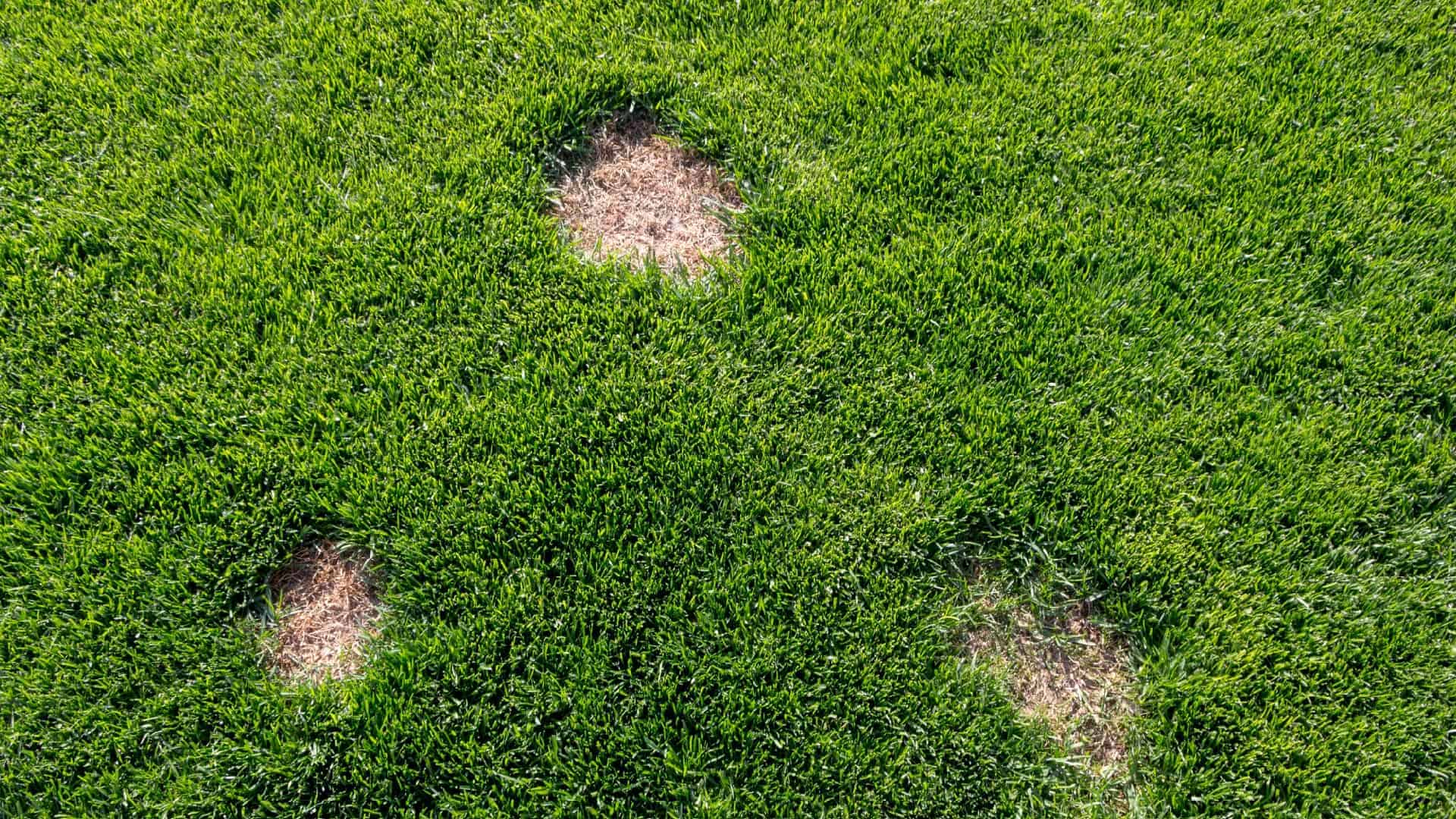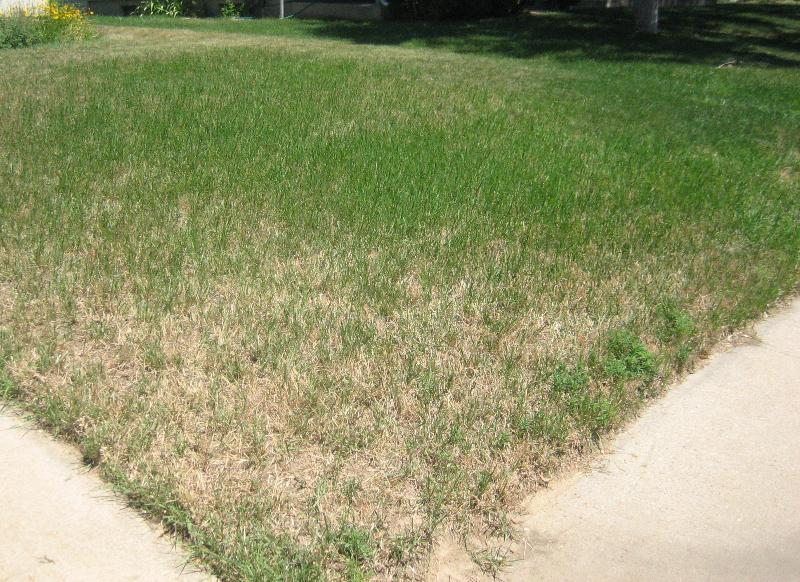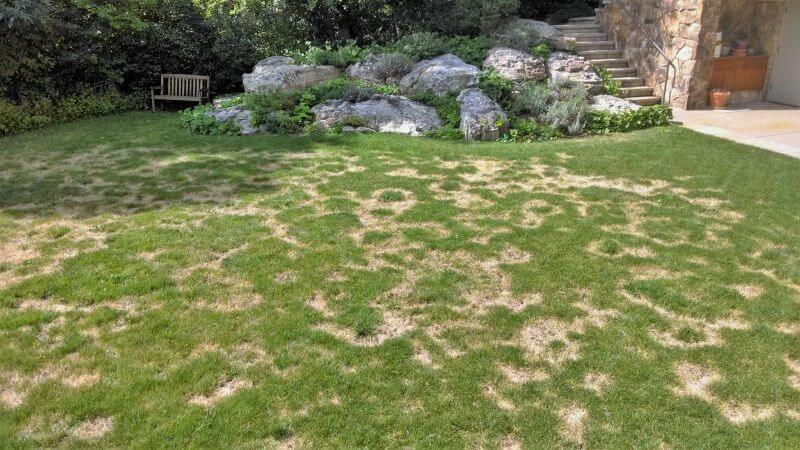Grass Fungus Colorado
Do you know what grass fungus is? Do you know how it can damage your lawn? In Colorado, grass fungus is a common problem that every homeowner should watch out for. If you are not careful, you may end up with an ugly, infected lawn that's hard to bring back to life. But don't worry, this article will give you a comprehensive guide on how to deal with grass fungus Colorado.
Grass Fungus Colorado: Common Pain Points
Colorado's climate is unique, with a combination of dry summers and wet springs. Unfortunately, these conditions create the perfect environment for grass fungus to grow. As a result, homeowners in Colorado deal with several pain points related to the fungus. These include:
- Discoloration of the lawn
- Brown or yellow patches
- Poor grass growth
- Unpleasant odor
- Increased pest infestation
What is Grass Fungus Colorado?
Grass fungus Colorado refers to any fungal disease that affects grass in Colorado. There are several types of grass fungus, with each type requiring a different approach to treatment. Knowledge of the specific type of fungus infecting your lawn is crucial in treating it effectively.
Summary of Grass Fungus Colorado and Related Keywords
Grass fungus can be a significant problem for Colorado homeowners. Its symptoms range from discoloration of the lawn to increased pest infestation. The climate of Colorado is conducive to grass fungus growth, and it is essential to know the specific type of fungi infecting your lawn for effective treatment.
Grass Fungus Colorado: Symptoms and Treatment
Grass fungus symptoms differ depending on the specific type of fungus infecting your lawn. But, generally, you'll notice some discoloration, yellow or brown patches, or poor grass growth. To treat the fungus, you'll first need to know the specific type of fungus infecting your lawn. One of the most common types of grass fungus in Colorado is the Dollar Spot fungus. This fungus causes small, round spots on your lawn. Another prevalent type is the Necrotic Ring Spot fungus, which affects grass roots and causes the gradual death of your lawn.
If you suspect that your lawn is infected, the first step is to consult a lawn care professional. They will take a sample of the affected grass, send it for testing, and then advise on the best course of action. Treatment options may include fungicides, removing thatch, maintaining proper lawn care, and aerating the lawn to reduce soil compaction.
Prevention of Grass Fungus Colorado
Preventing grass fungus Colorado is a much better option than dealing with an infected lawn. Here are a few tips to keep your lawn healthy:
- Water your lawn deeply and infrequently instead of shallow and frequently.
- Ensure proper drainage to avoid water accumulating on your lawn.
- Avoid mowing your lawn too short, as this weakens the grass and makes it susceptible to fungal attack.
- Ensure that your lawn is well-fed with proper fertilization.
- Avoid overwatering, as this creates too much moisture, which is a conducive environment for fungal growth.
The Benefits of a Professional Lawn Care Service
Sometimes, it's hard to know what's happening with your lawn. Consulting a professional lawn care service is an excellent way to take care of your lawn. They will provide a free consultation that includes a thorough inspection of your lawn. As a result, they will be able to advise on the best course of action to prevent and treat grass fungus Colorado.
Question and Answer: Grass Fungus Colorado
Q1: How can grass fungus Colorado be prevented?
A: To prevent grass fungus Colorado, ensure proper lawn care through deep and infrequent watering, proper drainage, regular mowing, and proper fertilization. By following these tips, you can help reduce the likelihood of grass fungus on your lawn.
Q2: How can I tell if my lawn is infected with grass fungus?
A: Grass fungus Colorado presents as discoloration, yellow or brown patches, poor grass growth, or an unpleasant odor. But, it's always best to consult a lawn care professional to get a proper diagnosis.
Q3: What treatment options are available for grass fungus Colorado?
A: Treatment options for grass fungus Colorado include fungicides, removing thatch, proper lawn care, and aeration to reduce soil compaction. However, the specific type of fungus infecting your lawn determines the most suitable treatment.
Q4: What should I do if my lawn is severely infected with grass fungus?
A: If your lawn is severely infected with grass fungus, it's best to consult a lawn care professional. They will provide a thorough diagnosis and recommend the best course of action, which may include re-seeding your lawn or re-sodding to restore it to its previous state.
Conclusion of Grass Fungus Colorado
In summary, grass fungus is a common issue that homeowners in Colorado might have to deal with. The climate of Colorado makes it especially vulnerable to this problem. Knowing the specific type of fungus infecting your lawn is crucial in treating it effectively. Taking preventative measures such as proper lawn care and consulting a professional lawn care service is also crucial in dealing with and preventing grass fungus Colorado.
Gallery
How To Stop Lawn Fungus | Lawn Maintenance Guide

Photo Credit by: bing.com / fungus ruggine
Frederick County Maryland
Photo Credit by: bing.com /
Pest & Disease Control | JVJ Lawncare & Sprinkler Co.
Photo Credit by: bing.com / blight leaf ascochyta turf disease fungus bluegrass colorado blighted extension kentucky lawns pest control facts quick
Foothills Landscape Maintenance- Northern Colorado Fort Collins

Photo Credit by: bing.com / lawn sick colorado healthy does look
Colorado Lawn Fungus And Disease Control By Organo-Lawn

Photo Credit by: bing.com / fungus necrotic lawns misunderstood nrs affects boulder